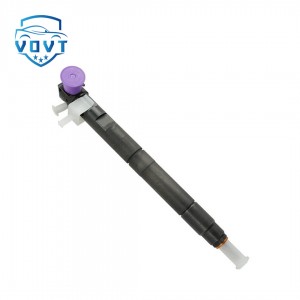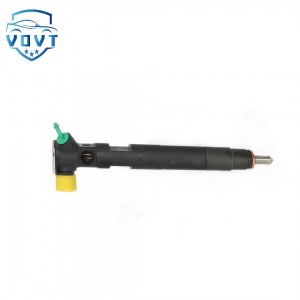Professional Manufacture Diesel Fuel Injector A6510702787 Common Rail Injector for Mercedes-Benz Engine Parts
Products Description
| Reference. Codes | A6510702787 |
| Application | Mercedes-Benz |
| MOQ | 4PCS |
| Certification | ISO9001 |
| Place of Origin | China |
| Packaging | Neutral packing |
| Quality Control | 100% tested before shipment |
| Lead time | 7~10 working days |
| Payment | T/T, L/C, Paypal, Western Union, MoneyGram or as your requirement |
Advantages and Disadvantages of Gasoline and Diesel Engines
1. The difference between power and torque
Under normal circumstances, the cylinder stroke of a gasoline engine is relatively short. The reason why this design is adopted is entirely to increase the maximum speed of the engine, so as to burst out more power. On the contrary, diesel engines pay more attention to vehicle torque, and the cylinder stroke is set to be relatively long, which can reduce vehicle speed and better amplify torque. Therefore, this is also the reason why heavy-duty off-road vehicles, SUVs, trucks, etc. all choose diesel engine oil as their power source.
2. Fuel economy
The so-called fuel economy, the most intuitive comparison is to compare the efficiency of two engines in converting thermal energy into mechanical energy. However, due to certain differences in engine technology from different manufacturers, there are certain differences in the thermal energy conversion efficiency of the engines. For now, the thermal efficiency conversion of automobile engines has always been a problem. The thermal efficiency of most gasoline engines can only reach about 40%. Only the thermal efficiency conversion of engines produced by brands such as Nissan and Mazda can exceed 40%. On the other hand, for diesel engines, the minimum thermal efficiency conversion is above 35%, and it is easy to exceed 40%. There are even some engines whose thermal efficiency can exceed 45%. Therefore, consuming the same amount of fuel, the diesel engine can convert more thermal energy into mechanical energy, which means it is more fuel-efficient.
In addition, the low thermal efficiency of gasoline engines is also closely related to the composition of gasoline. From a chemical point of view, gasoline and diesel are composed of small molecules, and for each hydrocarbon compound molecule, there are about 8-10 gasoline molecules. carbon atoms, while diesel molecules can reach 12-15 carbon atoms. The higher the carbon atom content, the greater the energy contained after combustion. Therefore, to achieve the same power, a gasoline engine needs to inject more fuel than a diesel engine, and the fuel consumption will naturally be higher.
3. Engine reliability and safety
The service life of the engine is closely related to the rotation speed. The higher the operating speed, the shorter the service life. For example, the engine used in F1 racing cars has an idling speed of 3,000 rpm, and the average engine speed is above 15,000 rpm when the engine is working, so it basically takes only a few races for an engine to be sent away for scrap. Returning to reality, diesel engines pay more attention to low torque, so when the same power reaches the same speed, the diesel engine speed is lower. In addition, even at the highest speed, the diesel engine speed usually does not exceed 4500 rpm, while the gasoline engine has a maximum speed of at least 6500 rpm in order to squeeze out more horsepower. Therefore, diesel engines with lower rpm are naturally more reliable.
Diesel is not volatile and is not easy to ignite at normal operating temperatures. Therefore, when a diesel engine accident occurs, the chance of the vehicle spontaneously igniting is also very small. Unlike a gasoline vehicle, once the fuel tank leaks, only a small spark can ignite it. Immediately ignites the entire vehicle.























